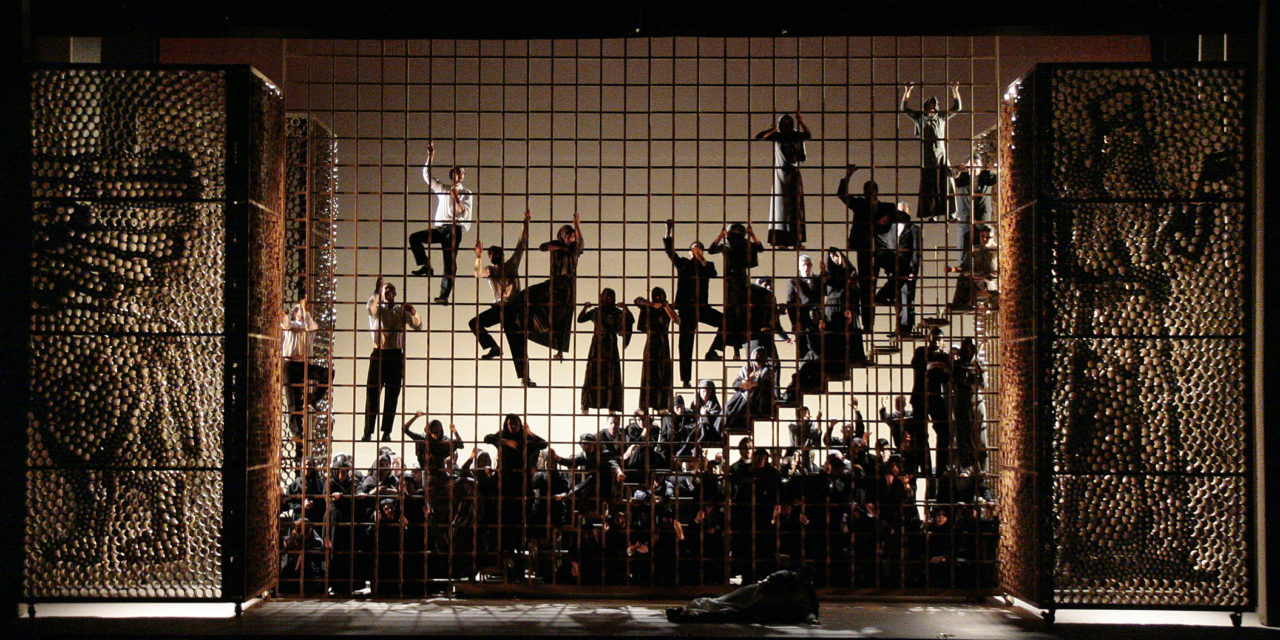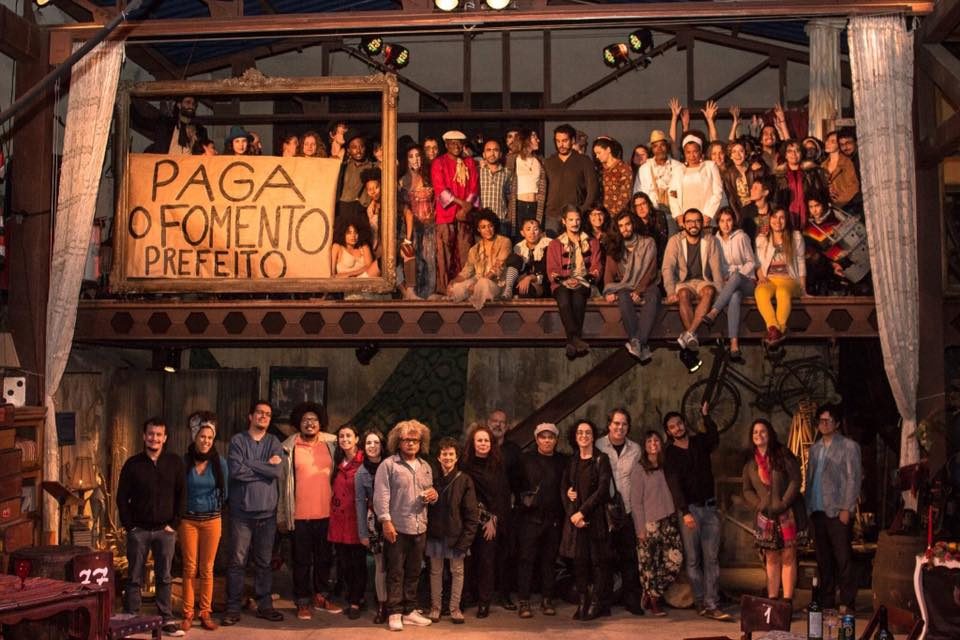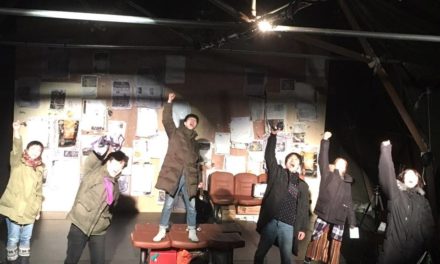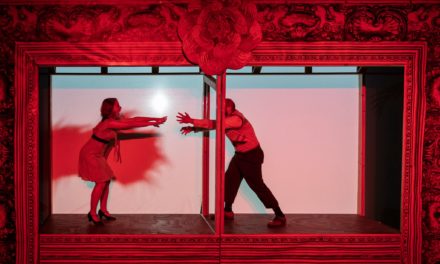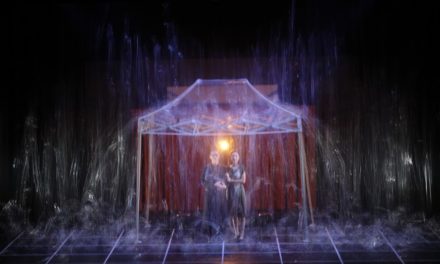The city of Rio de Janeiro has been historically acclaimed as one of the main hubs of theatre production in Brazil, right beside São Paulo. In 2017, the sudden cut of all government grants has placed the theatre in Rio in an unprecedented crisis. This is one of the many setbacks unfolded by the political, economic and ethical crisis that has befallen the country in the past years. However, to understand this menace to the artistic activity in Rio, one must first quickly revise the history of its production venues.
Rio de Janeiro was the first city in Brazil where the theatre was able to develop itself as a profession, economy and artistic expression. This tradition began at the end of the 19th century, when a frantic cycle of growth and modernization fuelled the rise of an industry of theatrical entertainment, based on popular traditions of musical comedy.
Over half a century later, Rio has also been able to mass-produce what São Paulo had professionally transformed into a luxury: the Art Theatre, based on the director’s creation of a piece of dramaturgic work. In Rio de Janeiro, the expansion of this “modern” and cosmopolitan theatre supported itself on a star system favored by the growth of the television industry in the city. From the 60’s to the 80’s, the fame acquired by “modern” artists on soap operas was responsible for attracting new spectators for the theatre. This symbiotic relationship between theatre and TV enabled an extreme professionalization of the theater scene, where a vast, diverse, middle-class audience would pack theatres to watch not only comedies of manners, but also realistic or intellectual plays.
Recent policies and problems
By the end of the 80’s, the popularization of television sets in Brazilian houses, as well as the economic crisis and urban violence, gradually shifted this symbiosis into a competition in which TV began to hurt theatre. Facing the crisis at the box office, private funding and experiments with non-realistic languages showed up as alternatives for the theatre in Rio. New languages, directors, groups, and sponsors were on the rise. Although this development brought forth certain artistic autonomy for the theatre, its new curatorial logistics displaced the focus from the audience to the sponsor, increasing even further the complexity of issues in the box offices of Rio de Janeiro.
Even so, many young people continued to take on a theatrical career that became more and more precarious due to the lack of spectators. In the 90’s, that rise was reinforced socially and geographically by the creation of drama schools and of a municipal network of theatres and cultural tents, by the increase of workers’ welfare systems (SESC and SESI) and by the theatre production connected to social movements and NGO’s, mostly active in slums and suburbs. These movements and organizations were responsible for putting on stage, for the first time, representatives of a young, black and poor population, often without access to essential public services.
Both experimental or small-sized theatre from the wealthy zones of the city and the social action theatre from the suburbs are excluded from the cultural merchandising logic of the Federal Law for Cultural Incentive (Lei Federal de Incentivo à Cultura in Portuguese, also known as Rouanet Law). Through this bizarre mechanism of indirect endowment, a company can sponsor a play and send all costs to the government, having the full grant value deducted from the Income Tax. This law mostly benefits grand musicals, popular comedies and plays with famous actors or with media appeal.
In the turn of the 21st century, artists and producers from the two largest capitals of the country reacted against this scenario of theatre commercialization and were able to achieve in this period the first local policies for direct endowment, made formal in annual calls for bids. In São Paulo, the law in effect (Lei de Fomento ao Teatro, in Portuguese) established a logistics of continuity, territoriality and language research focused on the theatre groups. In Rio, where the bids never became laws and remained dependent on electoral interest from mayors, the theatre groups had to adapt to the logistics of competition for enterprises. A sort of “new theatrical spirit,” which compounds art and the new forms of capitalism, seems to help Rio groups to conciliate their scenic experimentalism to the entrepreneurial practices and the competition for projects.
Despite having been improved throughout the years, the direct endowment bids of Rio de Janeiro’s town hall still mostly contemplate isolated plays and projects, with innovative staging proposals, but without a commitment to continuity or territoriality. They have never tackled the issue of the survival of artists and little do they favor the insertion of other social strata in the theatrical environment. Recently, new public policies have been thought out and tested regarding this subject, but the chaotic situation in the country in 2017 has paralyzed any possible advance.
The current situation
After the Olympic Games, the World Cup and the grueling impeachment process, Rio de Janeiro is, perhaps, the city that has been most affected by the current national crisis, passively watching as all its policies for direct theatre endowment dissolve. The SESC system, financed by federal taxes and acting in both social and experimental theatre, is being scrapped by a governmental body that, among reports of corruption, has already fired over 900 professionals. The State Cultural Office (Secretaria Estadual de Cultura, in Portuguese) has been paralyzed in the hands of a politician, member of the Brazilian Democratic Movement Party (PMDB), without any connection to the cultural environment. (The PMDB is a party with dozens of members arrested for, or under investigation of, corruption, among which stands the previous governor of Rio, the current governor and the president of the country). In the city scope, the Endowment Bid of 2016 has not yet been paid. The former mayor (member of PMDB) decided not to pay the 204 cultural projects that had won a public competition, launched by him months before the election. He also did not accrue any value for the budget of 2017 so that the current mayor, the winner of the elections, could carry out the payment. The latter puts the blame on his predecessor and, recently, decided not to pay the debt. The same city that, in four years, enriched construction companies (and some politicians) by erecting two museums and hosted the two greatest events of the sports world is today incapable of funding its artistic production.
Facing the national crisis reinforced by the neoliberal discourse and by the depletion of the Brazilian political system, one can foresee the possibility of sudden extinction of several forms of theatrical production, without any replacement in sight, particularly in the segments of innovation and social projects. Around the entire world, the theatre box office crisis has been aggravated with the rise of new media and the Internet. Could an art form that has been compensating the decline of revenues through government support survive or reinvent itself without it? In São Paulo, the contingency of the 2017 budget for the endowment laws caused a significant movement of cultural workers and artists of different social realities, artistic segments, and city areas. How to achieve such union in Rio de Janeiro, where the “new theatrical spirit” of entrepreneurialism hinders the collective action?
In spite of it all, some movements of carioca culture (“Movimentos pela Cultura”), such as “Reage, Artista!,” “Diálogos em Circo” and “Fórum Carioca de Arte Pública,” not only denounce the mayor’s debt, but also interfere in the legislative debate, proposing endowment laws and amendments to the municipal budget for culture. In 2016, theatre artists of Rio were also paramount to the national movement for the occupation of public buildings (OcupaMinC), which forced the government to give up on its decision to dissolve the Ministry of Culture.
However, it seems that to resist the dismantling of its local resources, the theatre also needs to incorporate and legitimize other agents, other public spheres, other geographies, and other social, aesthetic and production realities. From an expanded vision of the relationship between culture and city, new means of production and political practice may arise. Perhaps it will allow Rio artists to show society that the struggle for the theatre is the struggle for the future. From this battle, its survival may rise, displaying the importance of theatre as art, profession, and tool for the overcoming of the crisis of values that has befallen Brazilian society.
This post was written by the author in their personal capacity.The opinions expressed in this article are the author’s own and do not reflect the view of The Theatre Times, their staff or collaborators.
This post was written by Gustavo Guenzburger.
The views expressed here belong to the author and do not necessarily reflect our views and opinions.

